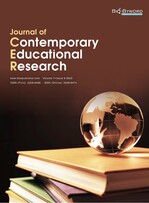Abstract
Numeracy is the capacity to use mathematical ideas in all facets of life. It involves activities such as adding and subtracting numbers, counting, number recognition, solving number problems involving various operations, sorting, observing, identifying, and establishing patterns. It is one of the fundamental skills that students should have mastered by the end of their primary schooling. With the notable importance of mastery of numeracy skills, low achievement and performance of the learners were observed in this aspect. This study aimed in enhancing the numeracy skills of Grade 3 learners through authentic performance tasks. The variable in numeracy skills includes the four fundamental operations and problem solving. The quasi-experimental design was utilized wherein purposive sampling or non-randomized sampling was used. In this study, 33 Grade 3 learners of Rizal Elementary School were selected to participate in the tests. Pre-test and post-test crafted by the teacher were the main instrument in the study. The result revealed that in the pre-test the learners obtained a mean percentage score (MPS) of 38.20% in four fundamental operations, which implied a non-numerate level. While in terms of problem solving, the learners obtained a MPS of 20.60% which is also in the non-numerate level. It has a grand mean of 29.40% with an interpretation of non-numerate level. In the post-test, it was observed that four fundamental operations have a MPS of 81.10% which is in average numerate level, while problem solving has a MPS of 76.30% with a grand mean of 78.70% with an interpretation of average numerate level. This implied that there is a significant difference between the pre-test and post-test in the four fundamental operations and problem solving. Thus, it can be concluded that the application of authentic performance tasks was effective to bridge the gap on numeracy skills.
References
Department of Education, 2019, Trends in International Mathematics and Science Study (TIMSS), National Center for Education Statistics, https://nces.ed.gov/timss/results19/index.asp#/math/intlcompare
Nelson G, McMaster KL, 2019, The Effects of Early Numeracy Interventions for Students in Preschool and Early Elementary: A Meta-Analysis. Journal of Educational Psychology, 111(6): 1001.
Aunio P, Korhonen J, Ragpot L, et al., 2021, An Early Numeracy Intervention for First-Graders at Risk for Mathematical Learning Difficulties. Early Childhood Research Quarterly, 2021(55): 252–262.
Department of Education, 2015, DepEd Order no. 12 s. 2015, Guidelines on the Early Language, Literacy, and Numeracy Program: Professional Development Component.
Siagan MV, Saragih S, Sinaga B, 2019, Development of Learning Materials Oriented on Problem-Based Learning Model to Improve Students’ Mathematical Problem-Solving Ability and Metacognition Ability. International Electronic Journal of Mathematics Education, 14(2): 331–340.
Verschaffel L, Schukajlow S, Star J, et al., 2020, Word Problems in Mathematics Education: A Survey. ZDM, 2020(52): 1–16.
Tallud SM, Caballes DG, 2023, Bridging the Gap of Jose Magsaysay Elementary School Learners in Numeracy: Makati Localized Numeracy Assessment Tool for Stage 1 (Grades 1–3). World Journal of Advanced Research and Reviews, 17(2): 678–685.
Aunio P, 2019, Chapter 8: Early Numeracy Skills Learning and Learning Difficulties—Evidence-Based Assessment and Interventions, in Mathematical Cognition and Learning, Cognitive Foundations for Improving Mathematical Learning, Volume 5, Academic Press, 195–214.
